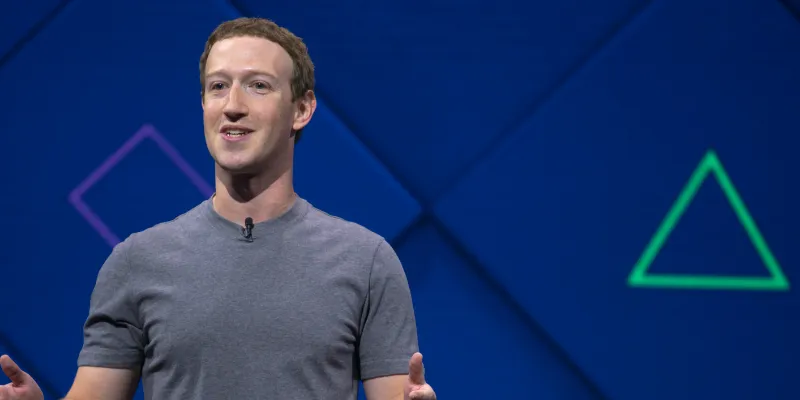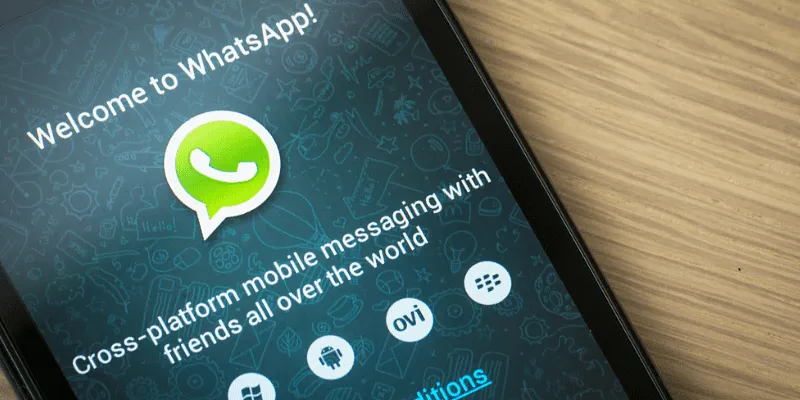WhatsApp issues clarification; says policy update doesn't affect privacy of messages
Facebook-owned WhatsApp said that it does not share users' contact lists or data of groups with Facebook for advertisement purposes.
Facing flak over its new privacy policy and terms of service, on Tuesday sought to assuage users' concerns saying its latest policy update does not affect the privacy of messages on the platform.
In a blogpost, -owned WhatsApp emphasised that it does not share users' contact lists or data of groups with Facebook for advertisement purposes.
Neither WhatsApp nor Facebook can read messages or hear calls between users on WhatsApp, it added.
Last week, WhatsApp had informed users of an update in its terms of service and privacy policy regarding how it processes user data and partners with Facebook to offer integrations across the social media giant's products.

Facebook CEO Mark Zuckerberg
It also stated that users will have to agree to the new terms and policy by February 8, 2021, in order to continue using WhatsApp.
This kickstarted a spate of conversations as well as memes on the internet over WhatsApp's alleged sharing of user information with Facebook. Many users have also started shifting to rival platforms like Telegram and Signal.
"We want to be clear that the policy update does not affect the privacy of your messages with friends or family in any way. Instead, this update includes changes related to messaging a business on WhatsApp, which is optional, and provides further transparency about how we collect and use data," WhatsApp said.
It added that WhatsApp accesses only the phone numbers from the address book (after getting user's permission) to make messaging fast and reliable, and that it does not share contact lists with the other Facebook apps.
"We use group membership to deliver messages and to protect our service from spam and abuse. We don't share this data with Facebook for ads purposes. Again, these private chats are end-to-end encrypted so we can't see their content," it noted.
Meanwhile, a report by internet security researcher Rajshekhar Rajaharia has claimed that at least 1,700 private WhatsApp group links were visible on Google through a web search.
WhatsApp noted that users can choose to set their messages to disappear from chats "for additional privacy".
Sajai Singh, Partner at J Sagar Associates, said only a very small percentage of WhatsApp's 400 million users in India are likely to discontinue using the service because of these changes.
"All messaging apps are competing for the same consumer, and, therefore, privacy and security would be the last things any would compromise on... Also, till India doesn't promulgate a data protection law, like the EU, it will not effectively be able to control the movement of data from the country...," Singh said.

He also suggested that individuals for whom security and privacy are still of concern, should away from free apps and using paid applications like Threema.
Mishi Choudhary, Managing Partner of boutique law firm Mishi Choudhary and Associates, said this update to the policy comes with "forced consent", and that regulators must not allow such practices without clear legal basis for change of purpose to collect data and meaningful consent.
Interestingly, a LocalCircles poll (of about 9,000 people) found 26 percent respondents saying they will drastically reduce WhatsApp usage and start using other platforms.
Around 15 percent said they will stop using WhatsApp completely and 10 percent said they will reduce WhatsApp usage and start using e-mail and SMS more.
WhatsApp, in its blog, said it will always be clear within the app when users are communicating with any business that uses its features designed for commercial entities.
WhatsApp explained that some large businesses need to use hosting services to manage their communication, and that it provides them the option to use secure hosting services from Facebook to manage WhatsApp chats with their customers, answer questions and send information like purchase receipts.
"But whether you communicate with a business by phone, email, or WhatsApp, it (business) can see what you're saying and may use that information for its own marketing purposes, which may include advertising on Facebook.
"To make sure you're informed, we clearly label conversations with businesses that are choosing to use hosting services from Facebook," WhatsApp added.
WhatsApp said if users choose to interact with 'Shops' (Facebook-branded commerce feature), their shopping activity can be used to personalise their Shops experience and the ads users see on Facebook and Instagram.
"Features like this are optional and when you use them we will tell you in the app how your data is being shared with Facebook... If you have WhatsApp installed on your phone, you'll have the option to message that business. Facebook may use the way you interact with these ads to personalise the ads you see on Facebook," it added.
A number of business leaders including Mahindra Group Chairman Anand Mahindra, founder Vijay Shekhar Sharma and PhonePe CEO Sameer Nigam have spoken of moving to rival platforms.
Mahindra said he had installed Signal, while Nigam said he had moved 1,000-plus 'PhonePe-rs' to Signal, besides recreating all his work groups and moving family groups.
"...WhatsApp is by far and away the best product I've ever seen in the social/comm category. I trusted the WA founders. I loved the simplicity of their product. Never imagined switching to another chat app. C'est la vie," Nigam tweeted.
Sharma also advocated moving to Signal.
"They say, market has power. We are the largest market. Here in India WhatsApp/Facebook are abusing their monopoly & taking away millions of users' privacy for granted. We should move on to @signalapp NOW. It is upto us to become victim or reject such moves," he said in a tweet.
Edited by Saheli Sen Gupta







![[Funding alert] Conversational AI startup Rezo.ai raises seed round led by Modulor Capital, others](https://images.yourstory.com/cs/2/730b5070-2d6c-11e9-aa97-9329348d4c3e/Rezo1566566124017.ai?mode=crop&crop=faces&ar=1%3A1&format=auto&w=1920&q=75)

